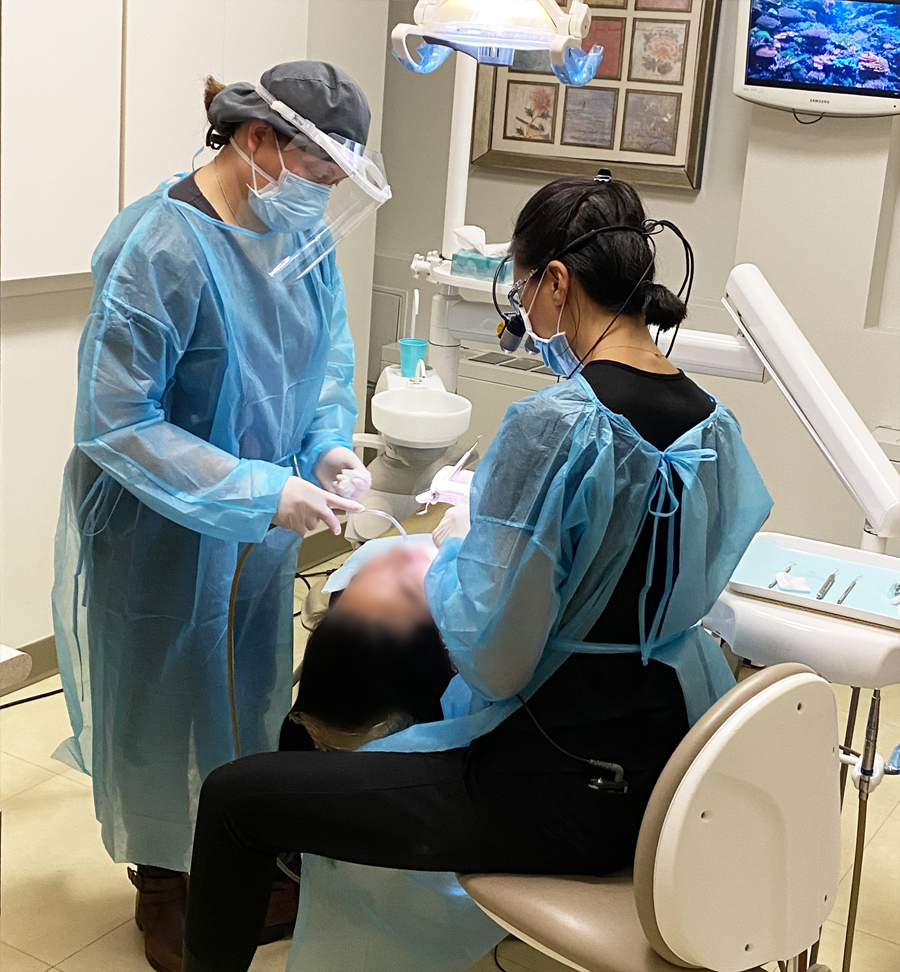Discover Regular Oral Worries Your Dental Professional Can Settle
Recognizing constant oral concerns is crucial for maintaining optimum dental health and wellness. Issues such as tooth cavities, gum tissue illness, tooth sensitivity, foul-smelling breath, and tooth decay are typical yet frequently forgotten up until they become extreme. Dental practitioners have the competence to diagnose and deal with these conditions, thus protecting against further problems. Regular dental sees and individualized treatment plans can attend to these problems efficiently, ensuring a much healthier and brighter smile. What particular treatments do dental experts utilize to deal with these concerns, and how can early intervention make a difference? The answers to these concerns offer beneficial insights right into safeguarding your oral health.
Cavities
Tooth cavities, additionally recognized as cavities, are a prevalent oral health and wellness problem triggered by the demineralization of tooth enamel as a result of acid production from microbial plaque. This process starts when germs in the mouth metabolize sugars and starches from food, producing acids that deteriorate the enamel. If not addressed quickly, this disintegration can pass through deeper right into the tooth, affecting the dentin and at some point the pulp, possibly leading to serious pain and infection.
The beginning of cavity formation commonly present as white places on the tooth surface area, suggesting first demineralization. As the process advances, these spots can become black or brownish sores, indicating extra considerable decay. Normal dental check-ups are critical for very early detection, as cavities in their inceptive phases can be treated with remineralization techniques, such as fluoride therapies.
When a tooth cavity has actually created, restorative intervention is essential. Dental professionals typically eliminate the decayed portion of the tooth and fill the dental caries with materials such as composite material, amalgam, or ceramic. In a lot more serious instances, a crown or root canal therapy may be required. Preventative actions, including great oral health techniques and dietary alterations, play a crucial duty in mitigating the danger of cavities.
Gum Disease
While tooth cavities stand for a significant concern for oral wellness, one more vital problem that demands attention is periodontal illness. Also called gum illness, gum tissue condition is an inflammatory problem influencing the cells surrounding and sustaining the teeth. It is primarily brought on by the accumulation of plaque-- a sticky film of microorganisms that bases on teeth.
Gum illness progresses with phases, beginning with gingivitis, identified by redness, swelling, and bleeding gums (dentist in eugene oregon). If left unattended, gingivitis can intensify to periodontitis, where the internal layer of the gum tissue and bone retreat from the teeth, creating pockets that end up being contaminated. Over time, the contaminants created by the germs break down the bone and connective tissue that hold teeth in area, potentially bring about tooth loss
Very early discovery and therapy are critical. Professional oral cleansings and improved dental health techniques, such as brushing twice everyday and flossing, can handle gingivitis. For even more sophisticated phases, treatments might consist of scaling and origin planing, anti-biotics, or even surgical treatments.
Normal dental exams play an essential role in handling and protecting against periodontal condition. Dental experts can recognize early indicators and suggest suitable interventions, ensuring the upkeep of healthy gums and general dental health.
Tooth Level Of Sensitivity
Tooth level of sensitivity impacts numerous people worldwide, offering a typical yet commonly distressing dental concern. This problem arises when the enamel, the outermost protective layer of the teeth, is compromised, disclosing the underlying dentin. The dentin includes microscopic tubules that lead straight to the dental pulp, where nerves stay. When revealed to stimuli such as warm, chilly, pleasant, or acidic materials, these nerves are activated, creating sharp pain or discomfort.
Several elements add to enamel erosion and succeeding tooth level of sensitivity, including hostile brushing, acidic foods and drinks, periodontal economic crisis, and bruxism (teeth grinding) Additionally, oral treatments such as teeth bleaching can briefly enhance sensitivity.
Foul Breath
Another prevalent oral worry that influences individuals' every day lives misbehaves breath, clinically termed halitosis. This condition can be particularly upsetting, affecting personal interactions and self-worth. Halitosis commonly originates from inadequate oral hygiene, which permits food bits to continue to be in the mouth, fostering microbial development. These microorganisms produce sulfur substances, causing undesirable smells.

Recommendations may entail boosting dental health methods, such as normal cleaning and flossing, making use of anti-bacterial mouthwashes, remaining moisturized, and addressing any oral concerns. Efficient monitoring of halitosis not just enhances dental wellness however also considerably enhances quality of life.
Dental Cavity

Stopping tooth degeneration entails a combination of good oral health techniques and regular dental check-ups. Brushing teeth at the very least two times daily with fluoride tooth paste, flossing to eliminate plaque between teeth, and restricting the consumption of sweet foods and beverages are essential safety nets. Fluoride therapies, oral sealers, and specialist cleanings given by a dental expert can additionally play a significant duty in fortifying enamel and stopping decay.
When dental caries takes place, very early intervention is vital. Dental professionals can get rid of decayed tissue and recover the tooth with fillings made from materials such as composite resin, amalgam, or porcelain. In advanced instances, therapies like crowns, origin canals, or extractions may be needed. By addressing tooth degeneration immediately, dental experts help preserve oral framework and function, ensuring lasting oral wellness.
Final Thought
Attending to typical oral issues such as tooth cavities, gum condition, tooth sensitivity, bad breath, and dental caries is important for maintaining ideal dental health and overall well-being. Dentists possess the knowledge to identify and deal with these problems effectively, making certain customized look after each individual. Normal oral exams and Homepage safety nets are crucial in determining and managing these problems early, promoting a much healthier and more positive smile over a lifetime.

Tooth degeneration, additionally recognized as oral decays, occurs when the enamel, the outermost layer of the tooth, is worn down by acids created by germs in the mouth. Brushing teeth at least twice daily with fluoride tooth paste, flossing to remove plaque between teeth, and limiting the consumption of sugary foods and beverages are important preventative procedures.Resolving typical oral issues such as dental caries, periodontal disease, tooth level of sensitivity, negative breath, and tooth degeneration is important for maintaining optimal oral wellness and overall well-being.